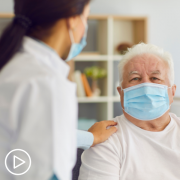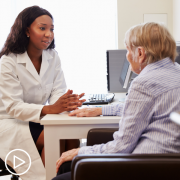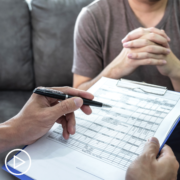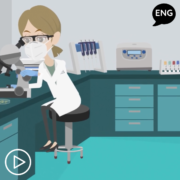What Key Steps Should Follow a Myeloma Diagnosis?
What Key Steps Should Follow a Myeloma Diagnosis? from Patient Empowerment Network on Vimeo.
A myeloma diagnosis can be overwhelming, so where do you start? Donna Catamero, a nurse practitioner specializing in myeloma, shares key advice for patients and encourages self-advocacy to access the best care.
Donna Catamero is Associate Director of Myeloma Translational Research at Icahn School of Medicine at Mount Sinai Hospital in New York City.
Related Programs:

|

|

How Can Myeloma Patients Take an Active Role in Their Treatment and Care? |
Transcript:
Katherine:
Donna, would you please introduce yourself for us?
Donna:
I’m Donna Catamero. I’m a nurse practitioner at the Mt. Sinai Hospital in New York City, where I focus on clinical research and treatment of myeloma patients.
Katherine:
So, as a nurse practitioner specializing in myeloma, what’s your role in the healthcare team?
Donna:
So, I have several roles. So, the first role is caring for multiple myeloma patients, in particular, treating patients on clinical trials, managing their side effects, managing their treatment. My other role is a nurse educator. So, I help train our nursing staff and our research staff on myeloma, new therapies, “Myeloma 101”. So, I really help train and on-board our new staffing.
Katherine:
Excellent. When first diagnosed with myeloma, what three key pieces of advice do you have for patients and caregivers?
Donna:
So, number one is be your best advocate. So, learn everything you can learn about your disease. Learn about the treatments, the side effects, the treatment schedules. Don’t be afraid to ask questions and it’s okay to ask a question multiple times because we might not commit it to memory. So, learn as much as you can; learn how the drugs work. That’s why I’m saying knowledge is power and really, knowledge will lead to you being your best advocate.
And number two, it’s okay to have a second set of ears with you. So, sometimes the situation might be overwhelming and we might not hear or understand what’s being told to us. So, it’s important to have someone, a loved one, a caregiver, with us, so that they can also hear what the healthcare team is telling them. And I know in the day and age of COVID, there may be restrictions for visitors in the healthcare setting, but we can do recordings. We can have loved ones on the phone, so that they can hear what’s being told. And number three, is do not be a martyr. There’s no need for anyone to suffer.
If you’re in pain, let your team know. We can provide a lot of supportive care and get you through the most difficult times of your diagnosis.
Katherine:
Why is it important that patients engage in their care and treatment decisions?
Donna:
We have many options we can offer patients. Back in the day when I first started in my nursing career, we had only a handful of treatment options for patient. Now, we have an entire toolbox of treatments we can offer patients. So, it’s important to understand the treatments, the side effects, the schedule, and see if that aligns with your treatment goals so that this way you can make a very informed decision.










